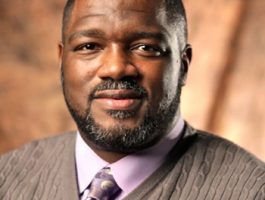
The Biblical Definition of Manhood
What does the Bible say about what it means to be a man? Voddie Baucham, Robert Lewis, Stu Weber, and Crawford Lorits offer succinct advice rooted in Scripture of what God expects a man to be.
Show Notes
About the Host
About the Guest
-
What does the Bible say about what it means to be a man? Voddie Baucham, Robert Lewis, Stu Weber, and Crawford Lorits offer succinct advice rooted in Scripture of what God expects a man to be.
-
Dave and Ann Wilson
Dave and Ann Wilson are hosts of FamilyLife Today®, FamilyLife’s nationally-syndicated radio program. Dave and Ann have been married for more than 38 years and have spent the last 33 teaching and mentoring couples and parents across the country. They have been featured speakers at FamilyLife’s Weekend to Remember® marriage getaway since 1993 and have also hosted their own marriage conferences across the country. Cofounders of Kensington Church—a national, multicampus church that hosts more than 14,000 visitors every weekend—the Wilsons are the creative force behind DVD teaching series Rock Your Marriage and The Survival Guide To Parenting, as well as authors of the recently released book Vertical Marriage (Zondervan, 2019). Dave is a graduate of the International School of Theology, where he received a Master of Divinity degree. A Ball State University Hall of Fame quarterback, Dave served the Detroit Lions as chaplain for 33 years. Ann attended the University of Kentucky. She has been active alongside Dave in ministry as a speaker, writer, small-group leader, and mentor to countless wives of professional athletes. The Wilsons live in the Detroit area. They have three grown sons, CJ, Austin, and Cody, three daughters-in-law, and a growing number of grandchildren.
-

Crawford Loritts
Crawford Loritts (B.S., D.Th., Philadelphia Biblical University; D.Div., Biola University) was the senior pastor of Fellowship Bible Church in Roswell, Georgia. He has served as a national evangelist with the American Missionary Fellowship and the Urban Evangelistic Mission, and as Associate Director of Campus Crusade for Christ. He co-founded Oak Cliff Bible Fellowship in Dallas, Texas. He is a frequent speaker for professional sports teams, including three Super Bowls and the NCAA Final Four...more
Robert Lewis
Robert Lewis has been a pastor, writer, speaker, and visionary for over forty years. Robert founded the original Men’s Fraternity and developed the Men’s Fraternity curriculum in 1990 while serving as Teaching Pastor and Directional Leader at Fellowship Bible Church in Little Rock, Arkansas. Robert was named Pastor of the Year by the National Coalition of Men’s Ministry in recognition for his efforts to help men discover Authentic Manhood. Graduating from the University of Arka...more
Stu Weber
Stu Weber was lead pastor of Good Shepherd Community Church, near Portland, Oregon for 33 years, and still preaches there. He is a much-in-demand international speaker and the author of several bestselling books, including "Tender Warrior." A graduate of Wheaton College, he also holds several advanced degrees from Western Seminary in Portland. A U.S. Army veteran, he was awarded three bronze stars as an officer and Green Beret in Vietnam. Stu and his wife, Linda, have been married for more th...more
Voddie Baucham
Voddie Baucham wears many hats. He is a husband, father, former pastor, author, professor, conference speaker, and church planter. He currently serves as Dean of Theology at African Christian University in Lusaka, Zambia. Dr. Baucham holds degrees from Houston Baptist University (BA in Christianity/BA in Sociology), Southwestern Baptist Theological Seminary (M.Div.), Southeastern Baptist Theological Seminary (D.Min.), an honorary degree from Southern California Seminary (D.D.), and additional...more
What does the Bible say about what it means to be a man? Voddie Baucham, Robert Lewis, Stu Weber, and Crawford Lorits offer succinct advice rooted in Scripture of what God expects a man to be.
The Biblical Definition of Manhood
Bob: What does it mean for a man to be a real man? Voddie Baucham says our culture’s got it all wrong.
Voddie: We measure manhood by the three B’s: the ballfield, the billfold, and the bedroom. “What do you do? What kind of money do you make? What do you play? You play ball. What position do you play? How far did you get?” Then, of course, the bedroom—“What kind of woman do you have? What kind of women have you had?” That’s how we measure manhood in our culture—and men, if we don’t fill that void with anything else—that’s how our sons are going to measure manhood.
Bob: This is FamilyLife Today for Thursday, October 19th. Our host is the President of FamilyLife®, Dennis Rainey, and I’m Bob Lepine. What does the Bible have to say about authentic masculinity and manhood?
1:00
We’ll spend time exploring that subject today. Stay with us.
And welcome to FamilyLife Today. Thanks for joining us on the Thursday edition. Our birthday is just around the corner. In fact, we’re just weeks away from celebrating 25 years of FamilyLife Today.
Dennis: That’s not Bob’s birthday.
Bob: Not your birthday, not my birthday—it’s our birthday—it’s the program’s birthday.
Dennis: It is the program’s birthday. We just want to thank you—as listeners—for listening. Thank you for giving—making this broadcast possible. I think we’ve been faithful to uphold the Scriptures and to teach what God says about marriage and family in a challenging day.
Bob: One of the themes we’ve tackled over the years has been to help guys understand what it means that God made them men and not women—
2:00
—and to embrace godly masculinity.
Dennis: One of the passages—when I open my Bible that smells like male perspiration—is 1 Corinthians, Chapter 16, verses 13 and 14. Listen to this, “Be watchful, stand firm in the faith, act like men, be strong. Let all that you do be done in love.” I love that passage because it’s got the strength and the tenderness—
Bob: Yes.
Dennis: —that ought to embody every man who follows Jesus Christ.
Bob: You know that over the 25 years that we’ve been doing this there’s been confusion in the culture about what masculinity looks like—whether it’s good. The phrase toxic masculinity has emerged in our culture in recent days to say, “When men act too much like men, it’s toxic in the culture.”
In fact, one of the guests we’ve had on FamilyLife Today—a guest who was a part of the Stepping Up® video series—
3:00
—Voddie Baucham—explained that most guys start life with a wrong view of what makes a man a man.
[Recorded Message]
Voddie: Why is this need so urgent? First, because of obvious cultural degeneration—our culture has degenerated—we don’t understand what manhood is. Really, we measure manhood by the three B’s: the ballfield, the billfold, and the bedroom—that’s how we measure manhood—the ballfield, the billfold, and the bedroom.
When men get together—again, apart from Christ or men who are in Christ—when they get together, very quickly, we want to know, “What do you do? What kind of money do you make?”—that’s the billfold—“What did you play?” Men are always asking each other, “What did you play? Do you play ball? Oh, really, what position do you play? How far did you get?”
4:00
That’s how we measure manhood.
Then, of course, the bedroom—“What kind of woman you got? What kind of women have you had?” That’s how we measure manhood in our culture—and men, if we don’t fill that void with anything else—that’s how our sons are going to measure manhood because it’s the only message that they’ve got—the billfold, the ballfield, the bedroom.
[Studio]
Bob: Voddie Baucham with a pretty good analysis of what the cultural markers are for what makes a man a man; don’t you think?
Dennis: I wanted to go back to what Paul said. He said men, “be watchful”—that means be looking out for the next generation. “Stand firm in the faith”—know what you believe—have some convictions, be courageous. It says, “Act like men”—as opposed to acting like a woman or acting like a boy. Then finally, “Be strong”—I think if there has ever been a time in our nation’s history when we needed men to be strong—
5:00
—and yet tender—which is the last half of this verse—
Bob: Right.
Dennis: —“Let all that you do be done in love.” I mean, Bob—when men behave badly, that’s toxic. When men are selfish, that’s toxic. When men are looking out for their own hobbies—their own games, their own billfold, their own prowess, sexually, that’s toxic—but we need men who know how to surrender to the King of kings and the Lord of lords. When they do that—that’s an aroma—a sweet aroma.
Bob: We’ve had some men over the years who have helped us get some biblical clarity around God’s design for masculinity. One of those guys has been your former pastor, Dr. Robert Lewis, who again was a part of the Stepping Up video series that we created a few years ago. He helped us understand that we can understand manhood by contrasting the first man, Adam, and the second man, Jesus.
6:00
[Recorded Message]
Robert: What I realized—as I read through the Scriptures looking for some kind of definition—because you’re not going to find a place in the Bible where it says, “A man is…” and then, it gives a specific definition—but what I realized is how often the Scriptures point to two men as the summations of—not only humanity—but also of masculinity.
The first is the man Adam, and the second is the second Adam, Jesus Christ—and in them is a summation—according to Herman Ridderbos, the theologian—he said, “In them are the summation of two ways of life, two identities, two humanities, and two masculinities.”
So, I began to dig and began to look at the life of Adam and look at the life of Jesus Christ—and I began to press those two lives together, closer and closer—and what came out of that comparison were four distinguishing—
7:00
—differences between the first Adam and the second.
The first component that came out was that a real man rejects passivity because the first Adam collapsed like a black hole into passivity and abrogated his leadership in the Garden in a passive way that allowed his wife to go off chasing an illusionary equality even with God—much like’s taking place in our society—and the result of that was chaos.
On the other hand, the second Adam—Jesus Christ—was not only not passive—He was not passive even in His pre-incarnate state. He looked at humanity—and when the Father said, “Look at this fallen world,” He was up on His feet saying, “I’ll go.” So, we see more masculinity in the manager of Jesus Christ—because you know what that was? That was an aggressive man—not being passive—but an initiating man.
Dennis: So, the first principle that defines a real man is he rejects passivity then?
8:00
Robert: That’s right. Believe it or not, since Adam—just like the Yale Sociologist, Steven Clark said, “Men have a natural propensity to social and spiritual passivity.” It’s in our bent as men.
Dennis: To be lazy?
Robert: Well, to be passive in the things that really count. We’re really aggressive in the things that don’t count necessarily that much, like golf and other things—and maybe a job—but the things that really count—the legacy we leave, the glory of God, the Kingdom of God, the church, the community—men—they go limp—and it’s natural to us. That’s why I say, “Men must reject that passivity;” and in the shadow of Jesus Christ is an initiating man.
The second distinguishing characteristic is that a real man accepts responsibility. You know the first Adam rejected responsibility in three key areas. He rejected the will of God to obey, the work God wanted him to do, and the woman God wanted him to love. But you know what? The second Adam did just the opposite. He accepted responsibility. He said, “I’ve come to do Thy will, O God.”
9:00
See, He was always a man under authority. He was always wanting to do the will of God.
Dennis: Right.
Robert: He came to do the work of God even when it meant His own execution. He took that on at His baptism, and He was faithful to that to the very end. In fact, in His high priestly prayer, He says, “I have accomplished the work Thou called Me to do.” And the last thing Jesus Christ did, He loved His woman—and His woman was His bride—the church. We get in the Scriptures—“Husbands, love your wives just as also Christ loved His bride, the church.”
So, Jesus Christ accepted the key areas of responsibility that are at the core of manhood: a work to do, a will to obey, and a woman to love. A real man accepts responsibility.
Third, a real man leads courageously. He gives protection, he gives direction, and he makes provision. Adam did not make provision for Eve. He didn’t give her direction when she was standing there interacting with the serpent,—
10:00
—and he certainly didn’t protect her.
Yet, you know what a real man does? He does what Jesus Christ did. He started out giving direction. What were His opening words? “Follow me.” He was a man who knew where He was going. He said, “I lay down my life for the sheep.” He was one who gave protection, and He gave provision. He said, “I have come that you might have life and have it abundantly.” He did that by leading courageously even at the expense of His own life.
See, the first Adam collapsed in—“I’m going to protect my life.” The second Adam said, “I’m going to be a life-giver.” It’s interesting that in 1 Corinthians 15, it says, “The first Adam was just a living soul,” and it’s got a period. It’s also interesting—it says, “And the second Adam was a life-giving spirit.” Everywhere He went, He gave life to others. He didn’t absorb the life of others. He gave life to others. And you know what a real man does? Everywhere he goes, he gives off life.
And the last thing that summarizes real masculinity—this definition—is a real man expects God to reward in life—God’s greater reward.
11:00
You see, one of the things that men are after is they’re after the gold of life—and they try to get that by squeezing it out of the world and a career and pleasure and possessions, but the real gold is the Kingdom of God. Every great saint has lived for God’s reward.
David said, “I would have despaired of life had I not believed that I would see the goodness of the Lord in the land of the living.” Moses—it says, in Hebrews—left Egypt “For he was looking for the reward.” Jesus Christ said, “It was for the joy set before me that I endured the cross.” We are looking for the reward.
It’s just—“Where is the reward?” The reward, I believe, that the second Adam tells us—it’s in the things of God. It’s in His calling—His Kingdom—and when we pursue that, what we find is that life becomes sweeter and sweeter. On the other hand, the conventional manhood gets more and more bitter.
[Studio]
Bob: Well, again, that’s Dr. Robert Lewis offering—I think—a helpful definition of manhood.
12:00
You actually added one thing to his list because he talks about accepting responsibility, rejecting passivity, leading courageously; and you said?
Dennis: Compassionately loving.
Bob: Loving courageously—yes.
Dennis: Yes.
Bob: You worked that in—and then, expecting the greater reward. Those markers can help a guy day-in and day-out know—“This is what I’m supposed to do.”
Dennis: They are great to pass on to our sons—and by the way, to our daughters. So, our daughters know what to look for in a young man who will care for her, for their children, and the spiritual well-being of their family.
Bob: Yes.
Dennis: That’s all a part of what makes a man great.
Bob: Several years ago, we had a green beret join us on FamilyLife Today—a guy who understood both the tough side and the tender side of manhood. In fact, he wrote a book called Tender Warrior; and he tackled this definition of manhood—
13:00
—in a similar vein to the way Robert Lewis addressed it.
Dennis: You’re speaking of Stu Weber. He’s a good friend and still a good man.
Bob: Stu is also a part of the Stepping Up video series for men. I guess what I’m trying to say is the Stepping Up video series gives you a good foundation of a lot of guys who offer a pretty good perspective on what manhood is all about.
Dennis: And it connects men to other men—
Bob: Yes.
Dennis: —and younger men, which we need to have happening today—and it does so around a spiritual setting. So, guys are opening the Bible, and they’re talking about who they’re going to surrender to.
Bob: Here is how Stu helped us think about God’s design for masculinity.
[Recorded Message]
Stu: What we’ve tried to do in this book is highlight four pillars of a man’s heart that allow him to be the man God intended him to be. When those pillars are standing straight and tall, they’ll bear the weight of any of life’s storms. When those pillars lean one way or the other, then everything crumbles around them.
14:00
So, what we want to see a man do is experience the pleasure of four-pillared manhood. That is that God intends a man to provide, he intends a man to protect, he intends a man to teach, and he intends a man to connect. Those four primary functions of providing and protecting and teaching and connecting, I see, as the four pillars of manhood.
That is, there is something of a king in every man’s chest to provide for those he loves that are near and dear to him. There is something of a warrior in every man’s chest to protect those who are near and dear to him. There is something of a mentor in every man’s chest to teach those who are near and dear. And there is something of a friend to connect emotionally and soulishly and spiritually and intimately to those who are near and dear—king, warrior, mentor, friend—provide, protect, teach, and connect.
[Studio]
Bob: Well, again, that’s Stu Weber—another good way to think about what it is that God’s called us to do as men. Again, I think just having some of that shorthand available as we go through life as guys helps us know—
15:00
—“What do I do in this situation?”
Dennis: Too often, Bob, we’ve got the world appealing to our selfishness and our lust and our pride to love the things of the world—and it’s just good to have a great voice like that in our lives, speaking truth to us.
I just want to stop here and say, “Thank you,” to Legacy Partners who have made this broadcast available over the past 25 years. Your faithfulness in giving keeps us going. Thank you, thank you, thank you! This is the kind of message you’re making possible to the boys, the young men, and the older men in our culture today.
Bob: You’re helping us reach more people, more often, with this kind of truth. We appreciate you standing with us.
Dr. Crawford Loritts spoke on this subject of the essence of manhood when we got together for an event that we hosted—this was about four or five years ago. It was actually when the Stepping Up video series was first released and Crawford talked—
16:00
—about us getting our minds wrapped around what it is that we are supposed to do as guys.
[Recorded Message]
Crawford: Manhood is a decision—it’s a choice.
Now, I want to talk today about character—the character of a man. Good character is consistent behavior over time that is clearly anchored to what is right—that’s what makes good character. Everybody has character. The question is whether it is good or whether it’s bad. If want great character, you’ve got to look at what you believe about God, what you believe about your family, what you believe about the truth of God’s Word. In everything you do, there has to be a pathway between what you believe and how you live.
Now, character also requires vision. We need to see what we must become. By the way, that’s the reason why manhood is both a decision, but it’s also imprinted.
17:00
Throughout the Bible, if you want the next generation to believe something, then you in this generation have to be the portrait for them to believe—you are the portrait. You are the desired destination at which other people need to arrive.
So, character has to do with vision. It has to do with me being the incarnation or reality before my children and the next generation of what a man looks like—and it’s that portrait—that picture—that is compelling. I really believe that’s the reason why the Apostle Paul wrote 1 Timothy, Chapter 3, verses 1-7—to give us a portrait—a vision—of what a leader—what a man—should look like.
This vision of godly character, I really believe, is summarized in two words in verse 2. I really believe the expression, “Therefore, an overseer must be above reproach.”
18:00
I really believe that that’s the summary of all these character qualities that he gives to us. He summarizes them, and the rest of these things are what it really means to be above reproach.
Now, by the way, the word—the expression—“above reproach” does not mean that you’re perfect—but it means that you are authentic and intentional. Who you are should be so eloquent and so clear and so transparent—see—that the legitimacy of accusations are taken away from you.
I’ll never forget when I was a teenager, there was this dear older woman that was great blessing in my heart and life—her name was Ms. McClendon. I’ll never forget—I was like 14—15 years old, and she said to me—“Listen, young man—don’t you ever do anything that the devil or people could use as a stick to hit you upside the head with.”
Phillips Brooks, the famed 19th Century preacher, said, “Character may be manifested in the great moments, but it is made in the small ones.”
19:00
It is made when you keep your promises. It is made when you make the little right choices. It is made when your family becomes a priority. It is the little choices—those little things over time—that weave the tapestry of a man that’s full of integrity and godly character.
The only way that this stuff can happen, though, is through the power of God’s Spirit. There can be a legalism that grips us that says, “I’ve got to produce this.” No, we can’t do it—this is part of the fruit of the Spirit.
When we yield ourselves to the power of God’s Spirit and we say, “Lord Jesus, I can’t pull this off. It’s impossible for me to do these things, but I know ‘Not by my power but by Your Spirit,’ says the Lord of Host,” then He produces the fruit of the Spirit in and through us.
20:00
The way to be strong as a man is to be surrendered as a servant—to say, “Lord, Jesus, I yield myself to You. Make me the man You want me to be. You know my past, You know my problems, You know my frustrations, You know my dysfunction, You know my issues—I bring them to You. Spirit of the Loving God, control me.”
[Studio]
Bob: Again, that’s Crawford Loritts talking about what’s at the heart of being a godly man. He’s right; isn’t he? Without godly character being formed in your life, masculinity can be dangerous.
Dennis: The real measure of a man is by who or what he surrenders to. Listen up guys—this is your charge for today: “Be watchful, stand firm in the faith, act like men, be strong. Let all that you do be done in love.”
21:00
If you fulfill all five of those commands today—you’re a man.
Bob: Yes. You know I remember talking to you when you wrote the book, Stepping Up, about your burden for men to understand what it is that God has created us for and has called us to and how we can live that out as husbands—as fathers—as men in this culture.
If we have listeners who have never read your book, I would really encourage the men who are listening to get a copy of Dennis Rainey’s book, Stepping Up: A Call to Courageous Manhood. We, of course, have copies in our FamilyLife Today Resource Center; and you can order the book from us online.
If you’ve never been through the Stepping Up video series—in fact, if you’ve never taken a group of guys through this series—we are making an offer right now where you can get the series material free if you’ll just buy ten workbooks and take a group of ten guys through this content. We believe this can be transformative for husbands and dads.
22:00
In fact, the reports we’ve gotten back from men in a variety of settings is that this series has been transformational in their lives. It has cemented some of the convictions we’ve talked about today and made them real for the men who have gone through the Stepping Up series.
If you’re a part of a men’s group—maybe, you’re in men’s ministry at your local church—look at the Stepping Up video series as something for your guys to go through. You can find out more about it online at FamilyLifeToday.com—or you can call if you’d like to order—1-800-FL-TODAY. Again, the special offer we’re making is essentially if you buy workbooks for ten guys, you’ll get the video series completely free. Find out more at FamilyLifeToday.com.
I was just sitting here thinking about last week and the programs we aired about the need for a wife to respect her husband. This week, we’ve turned our attention to talk to the men about what it is that God calls us to be as men.
23:00
Our goal here at FamilyLife Today is to provide practical, biblical help and hope for husbands, wives, moms, dads, men, women. We want to continue addressing the issues that are the core issues for strong, healthy, godly marriages and families. We’re grateful for those of you who see that vision—that mission, as being something worth investing in. You make it possible for the reach of FamilyLife Today to be expanded for young couples and new families to be able to tune in and benefit from this program because of your investment in covering the cost of producing and syndicating this daily program.
We’re grateful for our Legacy Partners who invest each month or for those of you who will from time to time make a donation. If you’re a regular listener and you’ve never made a donation, we’d love to have you join the team. You can do that today. Go to FamilyLifeToday.com, make a donation online—or call 1-800-FL-TODAY to donate—or you can mail your donation to FamilyLife Today.
24:00
Our mailing address is FamilyLife Today at P.O. Box 7111, Little Rock, AR; our zip code is 72223.
Now, tomorrow, we’re going to continue to explore what are the core characteristics—the core convictions—that need to be in place for a man who desires to be a godly man. We’ll talk more about that tomorrow. Hope you can tune in and be with us.
I want to thank our engineer today, Keith Lynch, along with our entire broadcast production team. On behalf of our host, Dennis Rainey, I’m Bob Lepine. We will see you back tomorrow for another edition of FamilyLife Today.
FamilyLife Today is a production of FamilyLife of Little Rock, Arkansas.
Help for today. Hope for tomorrow.
We are so happy to provide these transcripts to you. However, there is a cost to produce them for our website. If you’ve benefited from the broadcast transcripts, would you consider donating today to help defray the costs?
Copyright © 2017 FamilyLife. All rights reserved.
1



